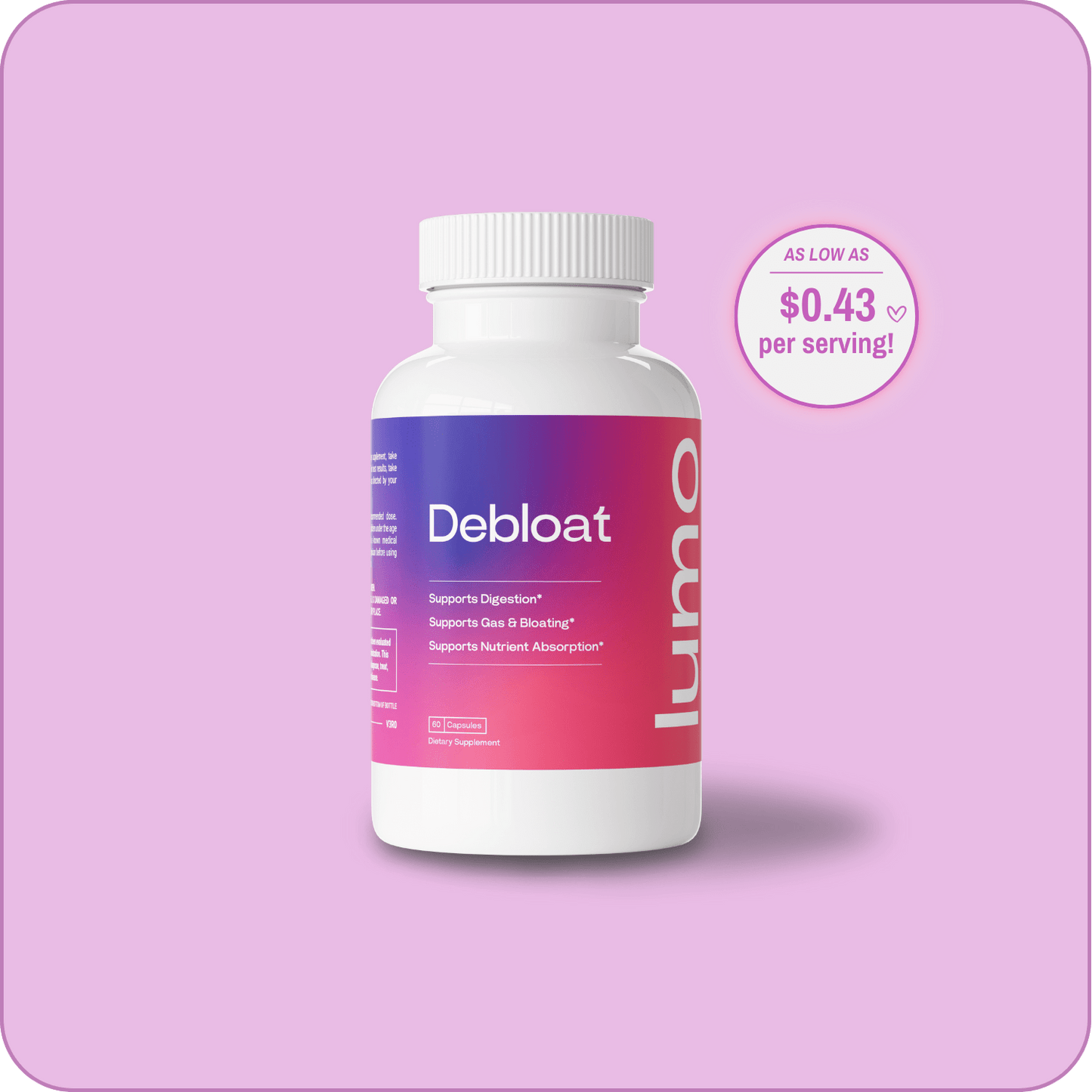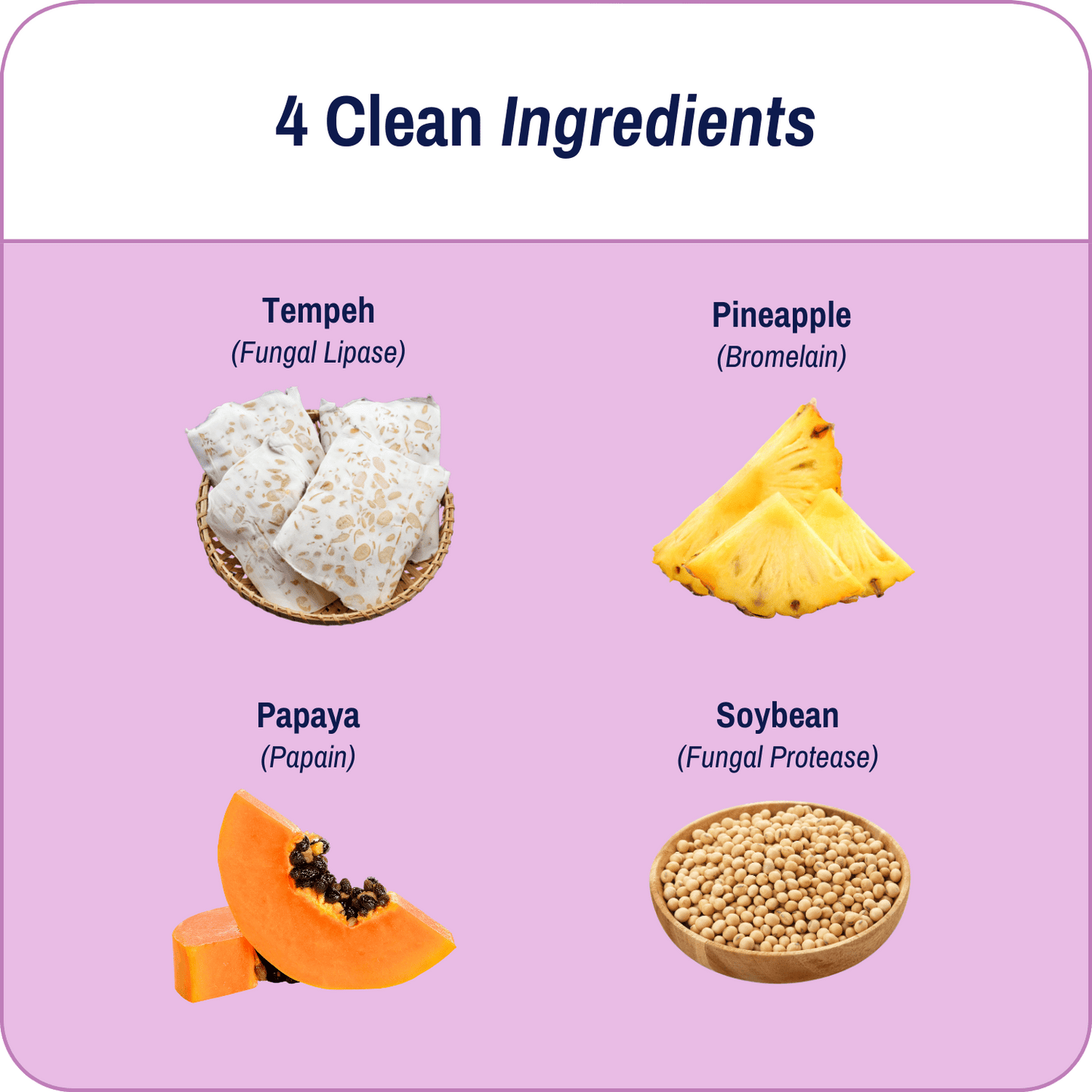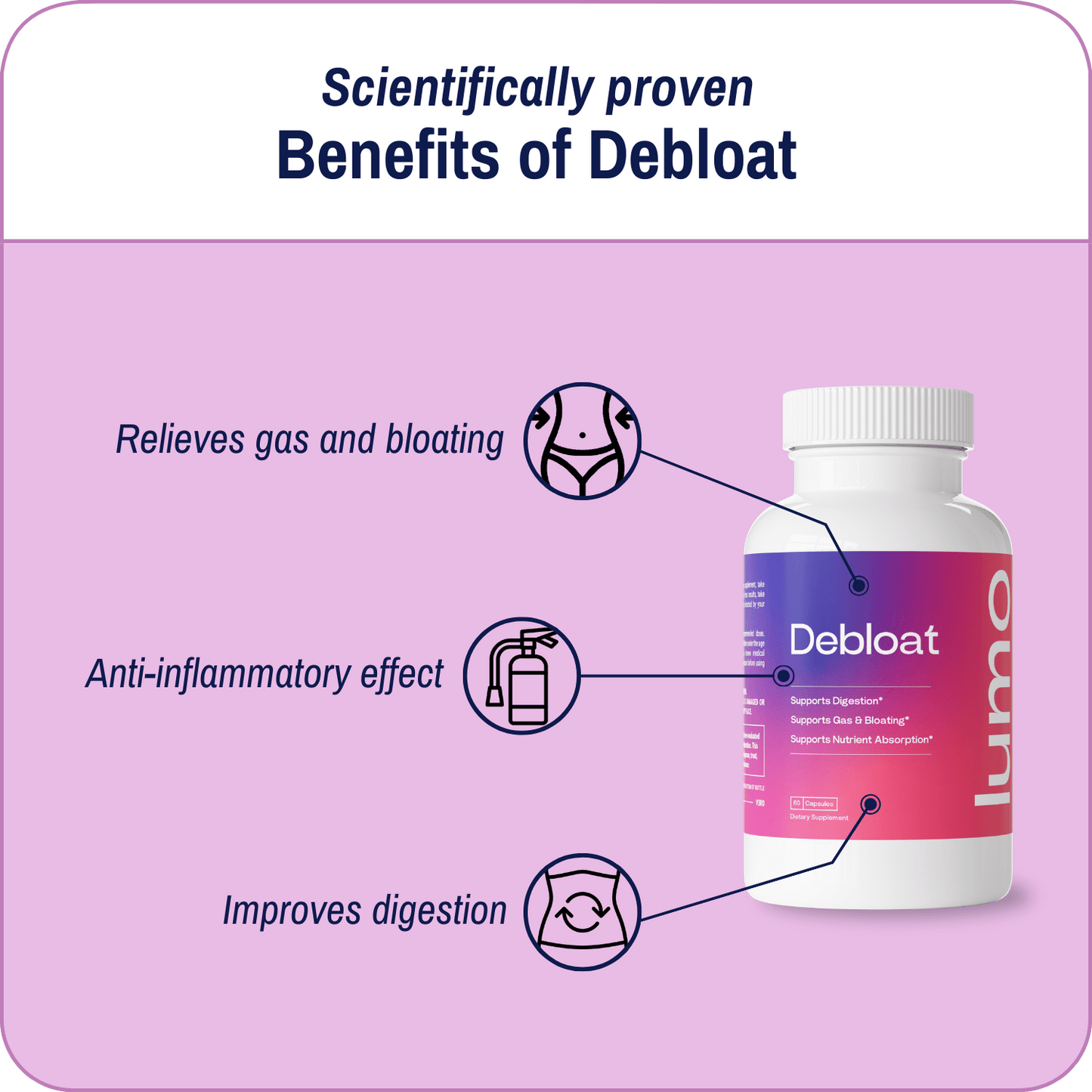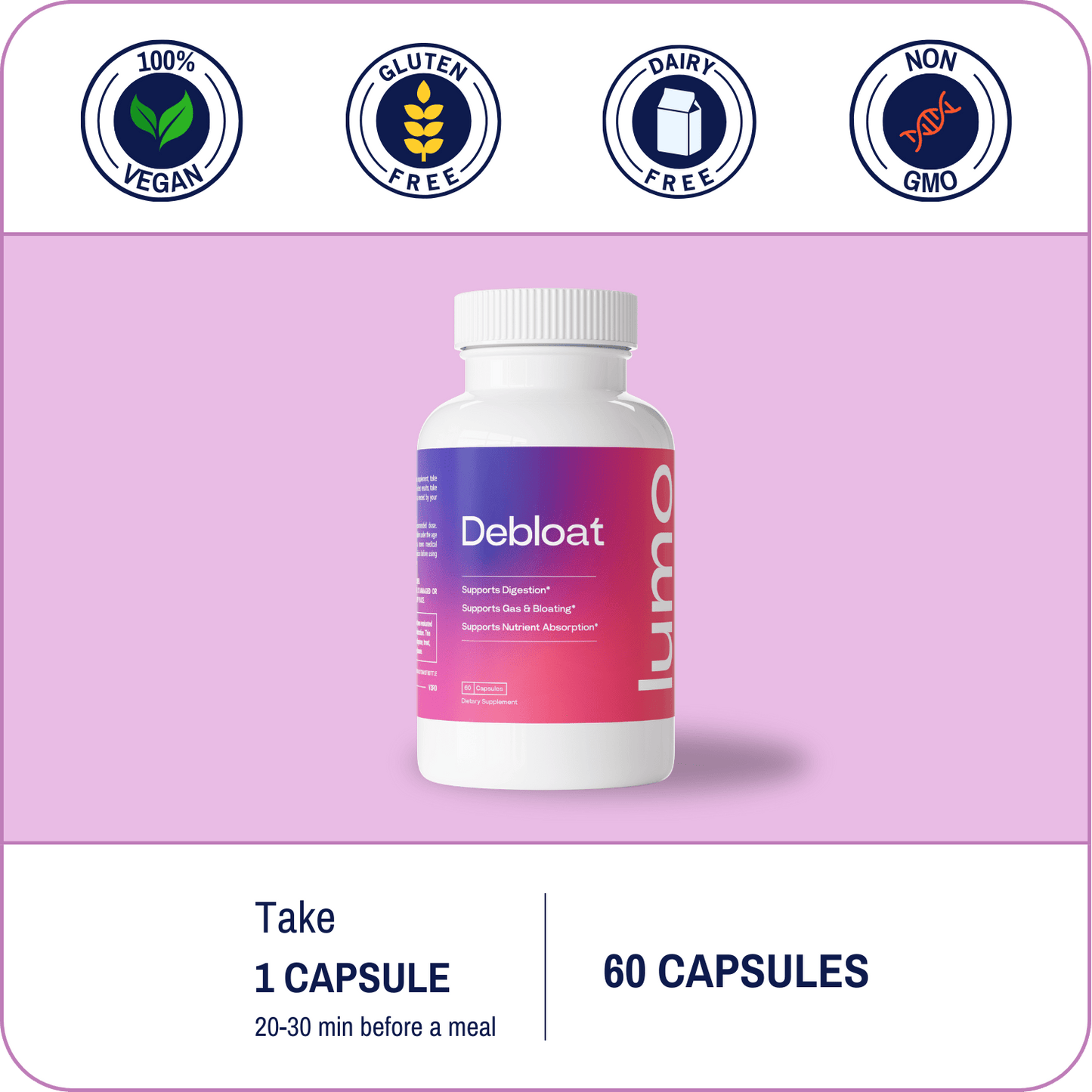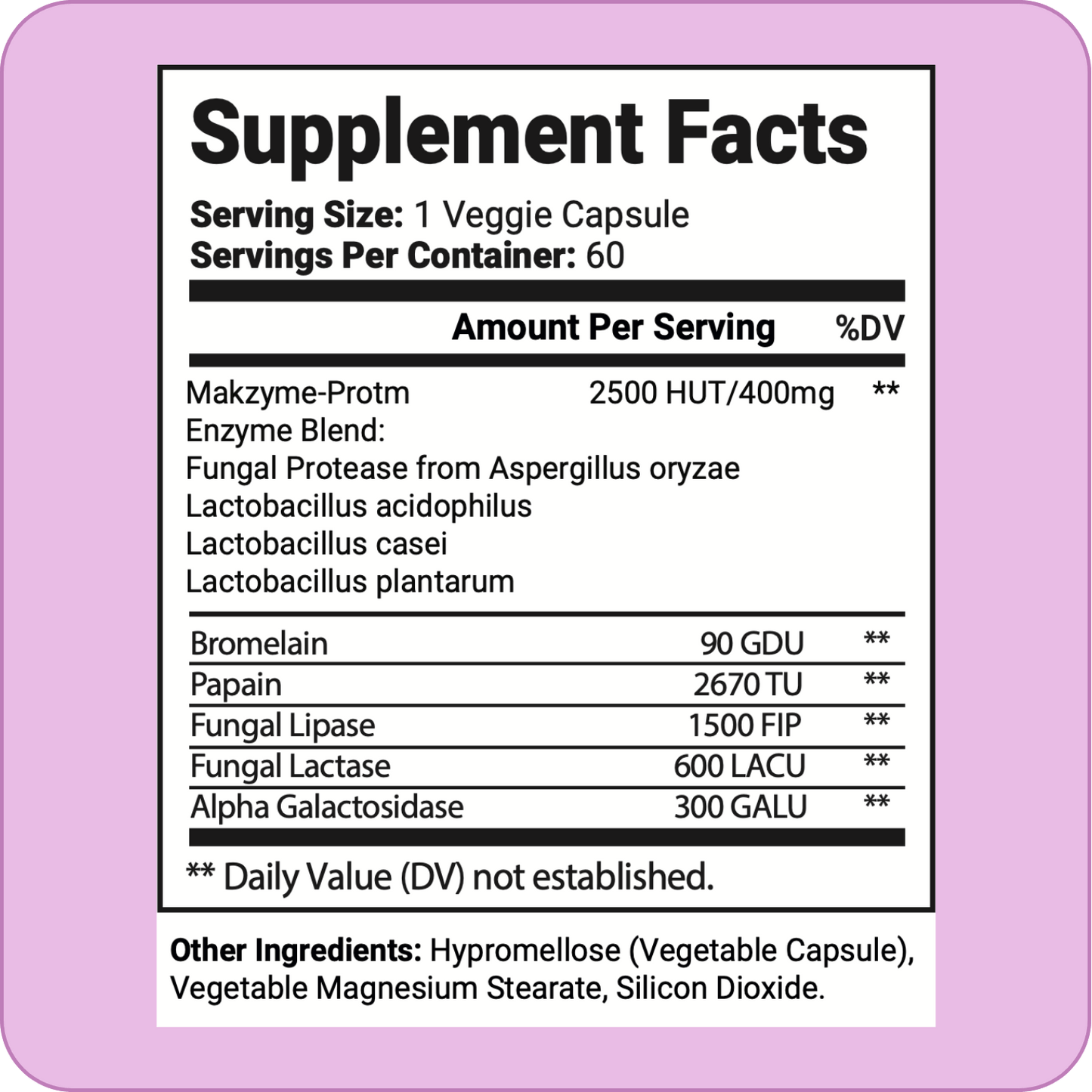
Probiotics for Gas: Natural Relief for Digestive Discomfort
Table of Contents
- Introduction
- What Causes Gas and Bloating?
- How Probiotics Help with Gas
- Best Probiotic Strains for Gas Relief
- How to Choose a Probiotic Supplement
- Other Tips for Managing Gas
- FAQs
Introduction
Feeling gassy and bloated is never fun. If you're searching for natural ways to manage uncomfortable digestive symptoms, you're not alone. Millions struggle with excessive gas daily. Fortunately, probiotics for gas can offer real relief. In this blog, we'll break down how probiotics work, which strains to look for, and how to choose the right supplement to support a happier gut.
What Causes Gas and Bloating?
Gas forms naturally in your digestive system as food breaks down. However, certain factors can cause excessive gas and bloating. A high intake of fiber-rich foods, swallowing air while eating or drinking, and food intolerances such as lactose intolerance can all contribute. Additionally, an imbalance of gut bacteria or underlying digestive issues like Irritable Bowel Movement may lead to persistent bloating. Recognizing the triggers behind your symptoms is the first step toward achieving lasting relief.
How Probiotics Help with Gas
Probiotics are live microorganisms that, when consumed in the right amounts, provide numerous health benefits, particularly for digestion. They work by restoring balance to the gut microbiota, improving overall digestion, enhancing nutrient absorption, and reducing inflammation in the gastrointestinal tract. With a healthier gut environment, your body can break down food more efficiently, leading to less gas and bloating. Incorporating probiotics into your routine helps maintain a strong digestive system and can make a noticeable difference in how you feel day-to-day.

Best Probiotic Strains for Gas Relief
Not all probiotics are created equal. Certain strains are particularly effective at easing gas and bloating:
- Lactobacillus acidophilus: Supports digestion and reduces symptoms of IBS
- Lactobacillus plantarum: Aids in digestion and controls intestinal inflammation.
- Bifidobacterium infantis: Known to reduce bloating and bowel discomfort.
- Bifidobacterium breve: Helps ease gas and promotes a balanced gut microbiome.
When shopping for a probiotic supplement, check the label for these strains to maximize your benefits.
How to Choose a Probiotic Supplement
Selecting the right probiotic can make all the difference. As a rule of thumb:
- Look for supplements with a variety of strains to ensure broad digestive support.
- Opt for science-backed brands that provide clinical research supporting their effectiveness.
- Always check the expiration date to make sure the probiotics are fresh and potent.
A high-quality supplement doesn't just stop at probiotics—some of the best options also include digestive enzymes, which can further support the breakdown of food and ease bloating. You can learn more about the role of enzymes in digestion in our digestive enzymes bloating blog.
If you want a supplement that ticks all these boxes, including powerful probiotic strains and digestive enzymes, check out Debloat. It's carefully formulated to deliver fast-acting digestive support.
Other Tips for Managing Gas
Along with adding probiotics for gas to your daily regimen, adopting healthy habits can make a huge difference. Eating slowly and chewing your food thoroughly can reduce the amount of air you swallow. Limiting carbonated beverages can prevent excess gas buildup. It's also helpful to identify and avoid foods that trigger bloating for you personally. Staying physically active helps keep your digestive system moving, while managing stress can ease overall digestive discomfort. Together, these practices create a strong foundation for better gut health.

❓FAQs
What are probiotics?
Probiotics are beneficial bacteria that support your gut health and aid digestion.
How long does it take for probiotics to relieve gas?
Some people notice improvements within a few days, while others may need a few weeks.
Can I get probiotics from food?
Yes! Yogurt, kefir, sauerkraut, and kimchi are excellent natural sources.
Are probiotics safe for everyone?
Generally, yes, but it's best to consult your doctor, especially if you have underlying health conditions.


